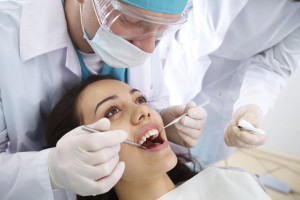 Over the years, questions have been raised about the efficacy (prudent need) of third molar (wisdom) teeth removal as a preventive measure, compared with waiting for pathology (problems) to develop.
Over the years, questions have been raised about the efficacy (prudent need) of third molar (wisdom) teeth removal as a preventive measure, compared with waiting for pathology (problems) to develop.
The American Association of Oral and Maxillofacial Surgeons Board of Trustees endorsed the concept clinical and biological research was needed to further investigate the answers to these questions.
In 1993, a special committee was appointed to critically review existing literature, and to design a prospective longitudinal clinical trial, which could give us more information, and continue to build upon our knowledge in the future. Multiple universities and doctors have been involved since then, and the data has been collected into what has become known as the Third Molar Clinical Trials.
From these clinical trials, there have been more than 70 articles or abstracts published, all yielding scientifically based reasons supporting the removal of asymptomatic wisdom teeth before problems ever arise. These studies include evidence for increased risk of bone loss and periodontal disease around the second molars, increased risk of decay on the second molars and premature loss of the second molars due to external resorption. In addition, there is evidence for a risk of chronic oral inflammation, with negative impact on cardiovascular, obstetrics, metabolic and renal outcomes.
Further publications also have shown increased risk of worsening of periodontal disease among pregnant women with retained third molars, and risk of pre-term, low birth weight babies. The findings also provide validation for prompt intervention of wisdom teeth removal to avoid adverse health-related quality of life issues, such as pain, oral function and resuming a normal lifestyle.
The evaluation of wisdom teeth is part of the normal exam your dentist does on a regular basis. Sometimes, an additional X-ray, called a panoramic, is needed to look at all the surrounding anatomical structures when determining the health/risk benefits surrounding the keeping or removing of wisdom teeth. Regardless of age, or with or without pain, the evaluation of a person’s wisdom teeth should be done periodically to help prevent future problems.
For more information, or to have your questions answered, please contact Dr. Derek Farnsworth at (480) 396-9685, or
Dr. Martin Farnsworth at (480) 283-5854.
Las Sendas Dental Health is located at 2947 N. Power Road, Suite 103.
Sossaman Dental Health and Implant Center is located at 1228 S. Sossaman Road.

